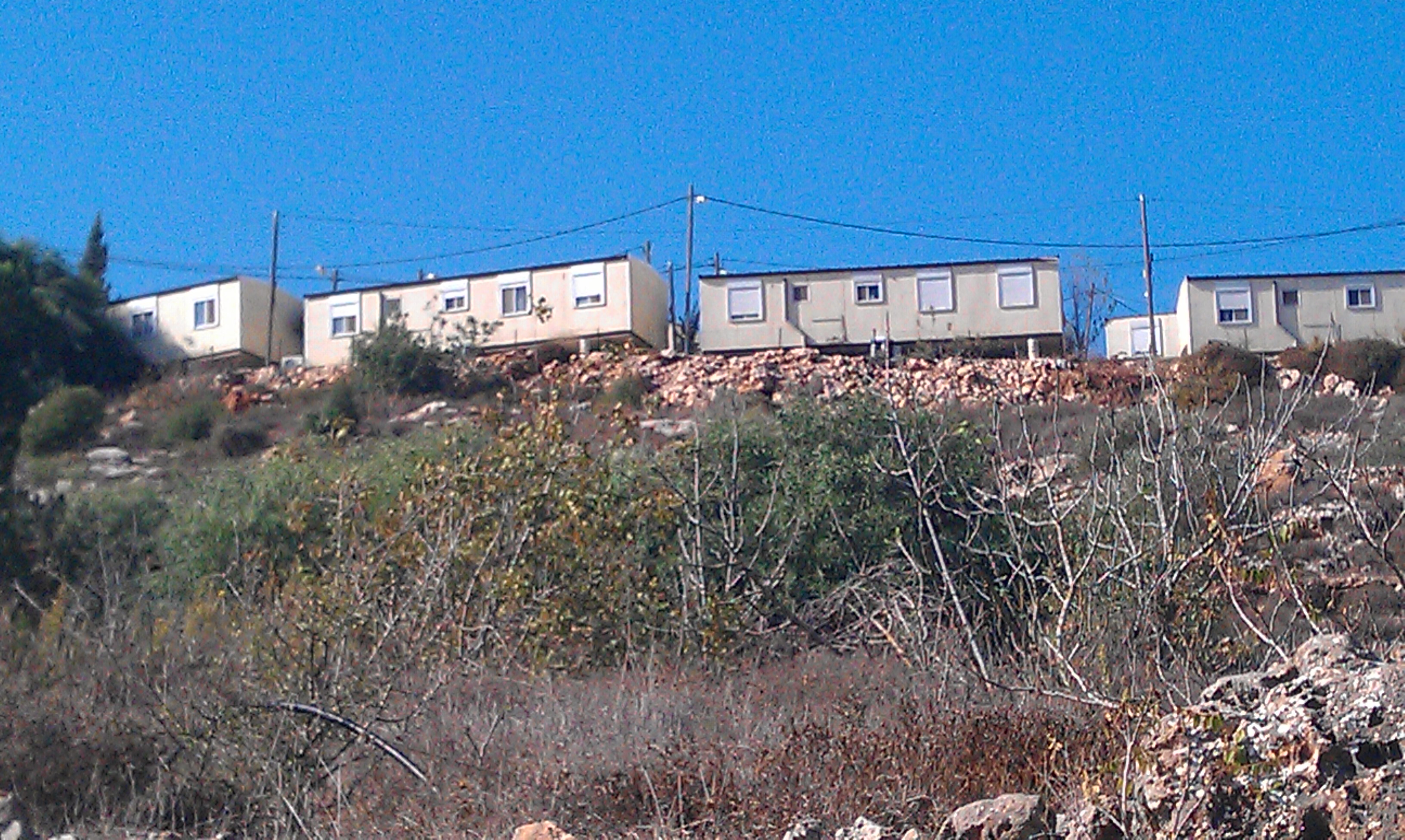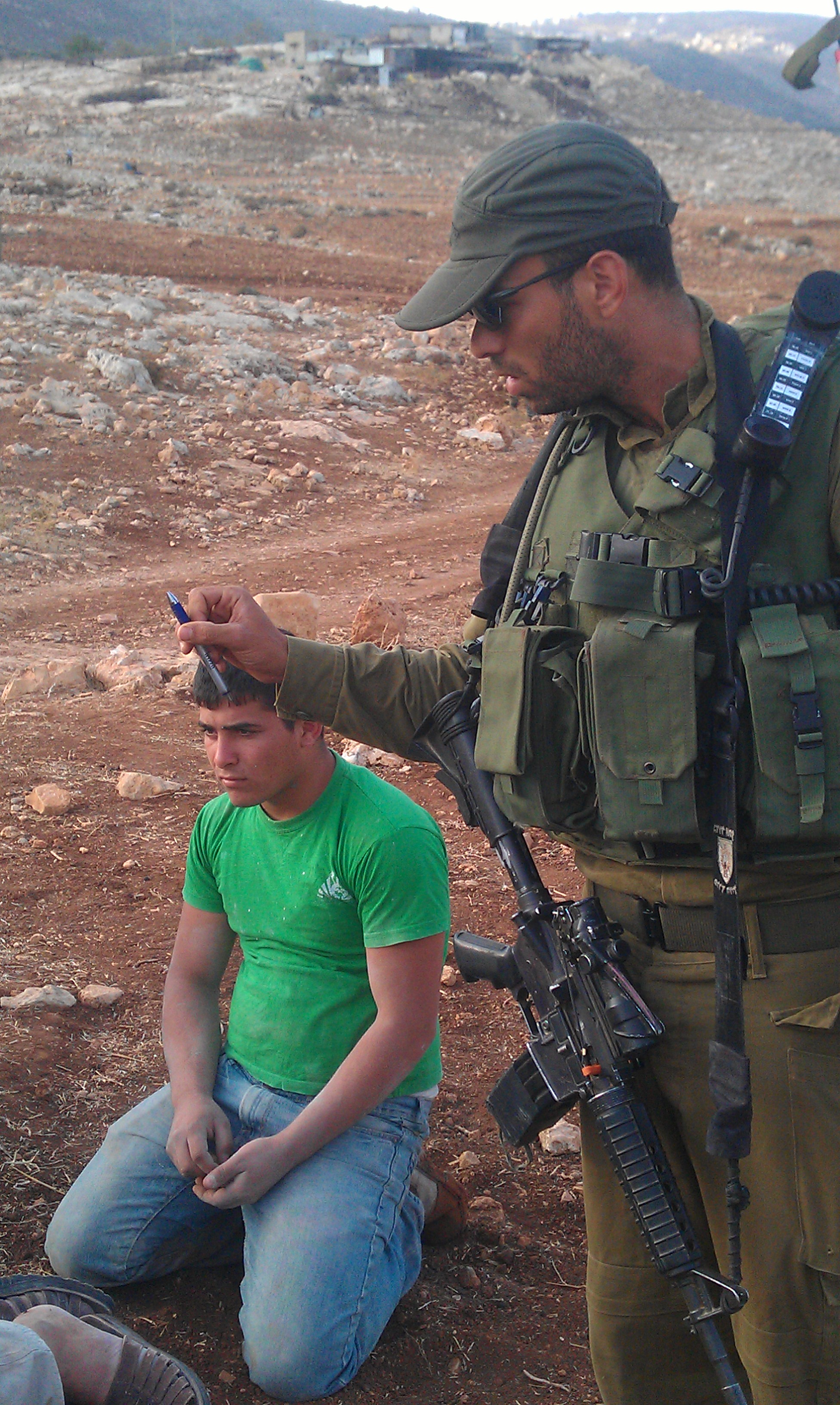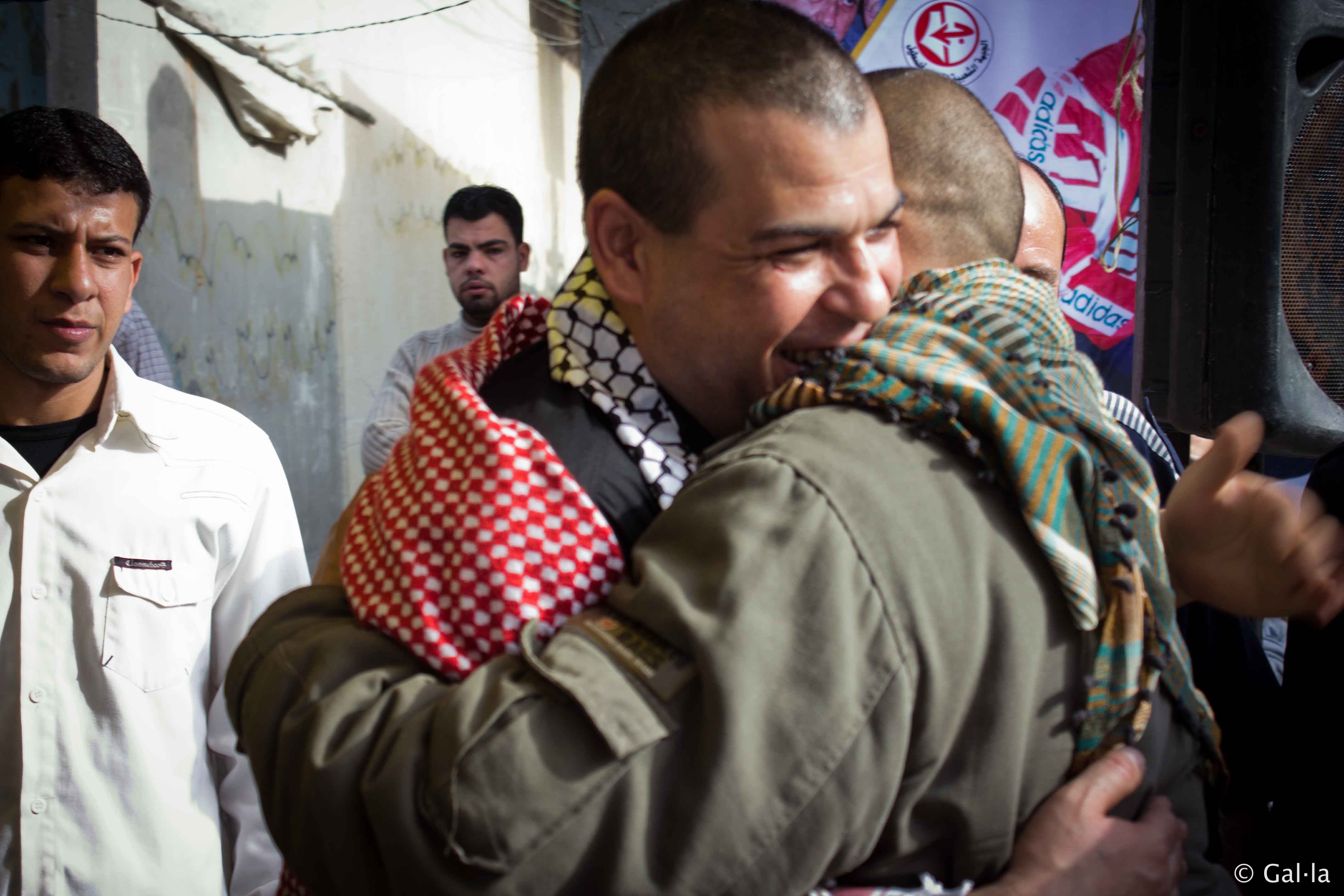Category: Reports
-
Settlers steal olives in As Sawiaya
4th November 2013 | International Solidarity Movement, Nablus Team | As Sawiaya, Occupied Palestine The villagers of As Sawiaya had gained permission to pick their olives, for just 3 days in the year the Israel army was allowing them to visit their land. These three days were overshadowed by the harassment and attacks from settlers…
-
Further Israeli army harassment in Tawayel
2nd November 2013 | International Solidarity Movement, Nablus Team | Tawayel, Occupied Palestine Today, Saturday 2nd November, a number of Palestinians supported by international activists traveled to the village of Tawayel to help rebuild a house for a family that was made homeless after Israeli forces demolished their property on Tuesday 29th October. By mid morning…
-
Photos: Released detainees celebrate new freedom with supporters in Gaza Strip
2nd November 2013 | International Solidarity Movement, Gaza Team | Gaza, Occupied Palestine Five former Palestinian detainees freed overnight Wednesday in the Gaza Strip have received a resounding welcome. Their families have erected celebration tents outside each of their homes to receive supporters and delegations. On Thursday afternoon, an overflowing bus carried several dozen well-wishers…



